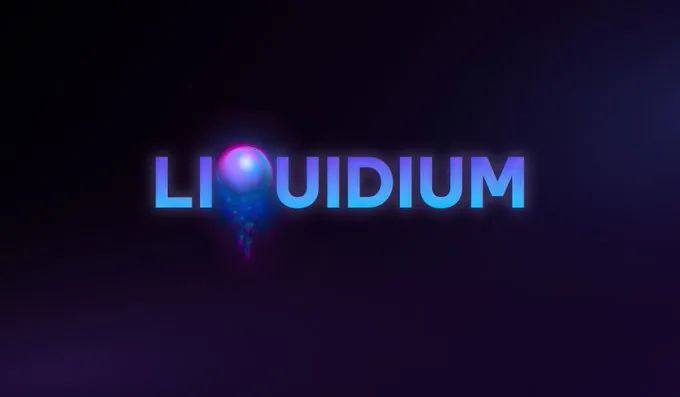Babbitt interviews Zhao Dong | Bitfinex releases LEO to raise 1 billion, RenrenBit has opened an appointment
On April 26, a complaint from the Office of the Attorney General of New York (NYAG) pushed the digital currency exchange Bitfinex and the parent company of the stable currency hegemony USDT, Tether, to the public opinion center.
The reason was that at the end of 2018, iFinex & Bitfinex was deposited with the payment partner Global Trading Solution's $850 million in assets. The money laundering was suspected of being frozen by Portugal, Poland and the United States. Bitfinex then borrowed from Tether to solve the problem of capital flow.
Under the influence of the crisis of trust, Tether itself is difficult to protect, and it is impossible to continue to borrow money to Bitfinex. To fill the funding loophole, on May 4th, Bitfinex released details about Bitfinex's IEO for platform currency LEO.
Bitfinex will issue a total of 1 billion platform coins, coded LEO, and periodically destroy LEOs in a monthly repo. User participation methods are divided into private and public offerings (after May 10). Private placements are only for those who receive the white paper, and public offerings will only take place when private placements are insufficient and there is still a share of tokens remaining. In addition, the latest news indicates that Bitfinex's LEO token will be changed back to the unrestricted all repo destruction mode instead of 90% destruction.
- The shadow bank hidden behind the currency, Bitfinex and Bitmex
- POS mortgages make money look good, but there may be fatal loopholes?
- Why does the betting DAPP do not need to be issued?
Although Bitfinex's move is a passive choice for emergencies, as a six-year veteran exchange, its announcement of Token has caused widespread concern in the community. Zhao Dong immediately said that the Token sales appointment can be made through the RenrenBit App. For the average user, only 1000 LEO base quotas are open, and for the cloud wallet to hold "qualified investors" worth more than 1 million USDT digital assets, there is no limit.
Zhao Dong accepted an interview with Babbitt and expressed his views on a series of recent issues:
Regarding LEO's profit forecast , Zhao Dong said that as an early investor of BNB, he has been studying platform currency. He is optimistic about the platform currency model, but at the same time he hopes that participants should pay attention to risks;
For Bitfinex's 850 million funding gap , Zhao Dong believes that the US regulation of Bitfinex's approach behaves like a "black society", and chooses to announce the early known situation when the usdt circulation reaches a record high, just as it has already made plans in advance;
For the reason for the support of Bitfinex , Zhao Dong talked about his ideas: First, several crises have proved that Bitfinex's financial situation is very good, and the team is kept lean and efficient, which is a solid support, and second, Bitfinex is profitable and stable. Subjectively, he did not make a bad motive, and he himself profited from debt-for-equity swaps, arguing that Bitfinex would not be the second goal;
Finally, for the development of USDT , Zhao Dong believes that there is no existence that can subvert its status, and there is no flow or instability in centralizing stable currency.
Can't predict LEO profit, but I am optimistic about the mode of platform currency
Babbitt: Why does Bitfinex solve the problem of liquidity in this way? When did this time come up and it didn’t feel like a temporary move to deal with the crisis?
Zhao Dong: In view of the current situation, I think this should be the most appropriate way. The so-called "IEO" is not accurate, because it is not necessarily issued on its own exchange. Now it is the private placement stage. If the private placement has reached the quota, there will be no public sales, and it may be directly traded on the exchange. I guess they should have thought about this kind of solution a long time ago. The reason why it is launched now may be that the current situation allows them to quickly decide and implement it.
Babbitt: What is the profit margin for participating in the purchase of LEO? Do you have a prejudgment?
Zhao Dong: I think we can think of it as a platform currency similar to BNB. Behind the platform coins are solid profit models as a support, I personally very optimistic about this model.
I was one of the earliest BNB investors. The first month of BNB's online market performance was very general. During the break, about 30% broke. Some friends retreated after losing money, and I not only sold it. I bought more, and in the end I got a lot of rewards.
I just give an example. The market is always changing. The platform currency is also risky. There are some uncertain factors behind the exchange, such as policy factors, hacking and stolen money, etc., which may affect the platform currency.
I don't make predictions about the profitability of LEO, because I am a stakeholder of Bitfinex. I suggest that you carefully understand all aspects of Bitfinex and make independent judgments. The market is affected by many factors, and I can't tell you whether the platform that invests in Bitfinex will definitely make money and earn. Babbitt: Bitfinex's participation in the sale of Token is divided into private placement and public offering (after May 10). What is the estimated amount of reservations on RenrenBit?
Zhao Dong: I can't tell the specific amount now. Some data are not easy to disclose. We will strictly follow the standards of qualified investors, and only participate in the quota of 1000USDT for ordinary users. This is actually a risk control for retail investors in the market. And protection, for users who have more than 1 million USDT assets and have certain risk tolerance, we believe that there is no limit on the number of qualified investors.
Babbitt: It is now possible to make an appointment on RenrenBit. Is there anything you want to emphasize with the user?
Zhao Dong: I especially want to emphasize the risks. From my personal experience, no matter what project, don't be blindly optimistic, I think I can make money. Be sure to put risk considerations first. I advise everyone to think twice before investing only in funds that they can afford to lose money. Don't be All in. Some of my views are based on personal experience and thinking. I may not be able to avoid personal subjective tendencies anyway, so I should only use them as a reference. In the end, everyone should have their own thinking and judgment.
For the 850 million fund loophole, the US behavior is a bit like "underworld"
Babbitt: What do you think of the accusations of Bitfinex and Tether by the New York Attorney General's Office (NYAG) and the series of things that followed?
Zhao Dong: A metaphor that may not be so appropriate, the US regulatory behavior is a bit like a "black society". This is a common feeling for everyone. Because the rules are formulated by the United States, they can use these rules to selectively restrict others. In fact, Bitfinex does not serve Americans, but they also registered with FinCEN (US Financial Crimes Enforcement Network) and informed all US regulators in advance. The United States first frozen their 850 million funds, and then Bitfinex decided The Tether credit was used to resolve this issue and was notified to US regulators in advance. However, NYAG chose to throw this issue at the most critical moment when the USDT circulation has just reached a record high. It is so targeted that it is obvious that there are other stakeholders behind it.
The USDC issued by Circle, which is registered in New York, is part of the reserve. At this time, we can see two standards. Why is the United States a standard for New York's own business and another standard for non-US companies? This is very interesting. We can't say that there is a stake in the speculation that is certain, but there is reason to doubt the interests behind this series of actions. Objectively speaking, if Bitfinex does not do where they are, it is currently lacking transparency to the public throughout the process.
Tether changed to a partial reserve in March. We can understand that their frozen funds are still their assets, but they are temporarily unavailable, right? The first is that Bitfinex has frozen 850 million assets, causing potential risks in cash withdrawals. They need to protect customers, so they seek Tether to give him credit, which is equivalent to Tether lending him money. But those who understand finance should understand that from the balance sheet of Tether, this loan belongs to the creditor's rights. It is not spent or lost the money. The corresponding asset adequacy ratio of USDT is still 100%. Babbitt: At present, Bitfinex's 850 million fund deficit problem can be solved properly. Is it possible for investors who are participating in the purchase of Token at this moment to face great risks?
Zhao Dong: First of all, I think the word "deficit" is misrepresented, because the frozen funds of Crypto Capital Corp can be returned to Bitfinex with great probability. Of course, this is only my personal guess. Crypto Capital Corp provides services to many exchanges, and they are the channel for their funds to enter and exit. These exchanges will certainly deposit some funds in them.
What I understand is because Crypto Capital Corp's own KYC/AML is not strict enough, customers have money laundering behavior, and if they do not fulfill their anti-money laundering obligations in accordance with the law, then there is money laundering. As a result, Crypto Capital Corp was investigated and funds were frozen. However, this fund actually belongs to Bitfinex's customers. It is reasonable to say that after the investigation is clear, the big probability is to return, but it may not be able to give an accurate return time.
I asked Bitfinex if I could prove that Crypto Capital Corp was frozen for so much money. Bitfinex said that they saw the bank flow and thought that this is the case, but since Crypto Capital Corp is in the state of being investigated, it is now impossible to prove this. The funds are still there, and I understand that is the case. Babbitt: Why do you like Bitfinex like this?
Zhao Dong: I personally feel that there is no evil motive behind this series of Bitfinex initiatives, because his profits are really good. As a shareholder, I know everything about what is happening in the middle.
In 2016, Bitfinex encountered hacking and stealing coins. At that time, the boss told me that as long as the second doorhead (Mt.Gox) is not done, any solution can be used, and even if the company is sold, the acquirer must also bear the corresponding debt. In the end, their plan was perfect, gave a plan for tradable bonds, and later allowed everyone to convert their bonds, and the ending was very happy. The people who hold the debts buy back one by one, and the people who have the debt-to-equity swaps finally have dividends.
At that time, investors were not very confident that Bitfinex could cope with the hacking of the money in the past, but we feel that since they have made a positive response, there is no road run and bankruptcy liquidation, which is actually very good. And this is not exactly Bitfinex's mistake, but BitGo's security solution is too bad, they have been implicated. Bitfinex has always been a positive solution to the problem, and many ways and methods are also innovative.
The view of Bitfinex may not be completely objective, because I have believed in them in the past and made a profit. After the last debt-to-equity swap program ended, it was fully profitable from the second quarter of 2017. The cost of each of my shares is about $0.3. Now I have about $5 and $6 per share, which means that the dividend far exceeds my principal.
Bitfinex's return to shareholders is very good, based on this experience of actual investment income, I trust them. And they have very solid financial reports, and everyone should understand – no more than 100 people in 2018, net income of 404 million US dollars, I think they have no motive for evil. How can I speculate that others do evil? Because they have never done bad things themselves, or tried to do bad things, the situation they face now is forced. Babbitt: What do you think of the strong correlation between Tether and Bitfinex? This incident stems from Tether's solution to liquidity problems for Bitfinex. Is this desirable? Will the value of USDT remain in an unstable state?
Zhao Dong: In all fairness, this has indeed caused panic to everyone, but if you regard Tether as a bank, then part of the reserve is actually normal, which is also a common practice for banks. Bank of America's standard reserve is only 3%. In comparison, 75% of the reserves are already quite high, and Tether does not pay the problem, which is the risk of Bitfinex instead of Tether.
On the other hand, looking back at history, let's see how Tether was created. In July 2014, Bitfinex had $140 million in Taiwan and couldn't get in and out. At this time, Bitfinex users began to use the USDT to make more money, which means that Tether was a tool created by Bitfinex to solve the problem. This tool has gradually become an industry consensus and has evolved into a tool with public attributes that is commonly used in the industry.
About decentralized stable currency, either no traffic, or unstable
Babbitt: Recently, everyone has a crisis of trust in Tether. Do you think it is possible to endanger the hegemony of the USDT?
Zhao Dong: I think it is still not possible for the time being. Compared with last October, the impact of this crisis is much smaller. Last year, the price of USDT fell more than 10%, and this wave fell by up to 3% at most. This shows that people's ability to withstand rumors and panic is getting stronger and stronger.
Many people question why Tether does not audit to increase public trust. In fact, as far as I know, it is not that Tether is unwilling to be open and transparent, but that the four major auditing companies have all looked for it, but no one is willing to do it for them because it is not the Lily American rule. Babbitt: What do you think of decentralized stable currencies, such as DAI, which are backed up by US dollars or other legal currency assets, will the future be replaced by such decentralized stable coins?
Zhao Dong: I personally hope to centralize the stable currency. In 2014, BTS launched the decentralized stable currency. I was the first to try on the system, but I found that the biggest problem is that there is no demand, no flow. Sex.
There is an impossible triangle in monetary theory, which means that you cannot achieve free flow, price stability, and monetary policy independence at the same time. I don't think the current decentralized stable currency can solve this problem. Tether's liquidity is very good, but it can also be seen from recent market volatility. It is not really stable. It has been trying to get rid of the constraints of the United States, and it is difficult to achieve coordination in terms of independence and stability.
Decentralized stable currency, the independence of monetary policy is there, but there is liquidity, but it is impossible to stabilize, or it is stable but liquidity is not good. I very much hope that there will be excellent and reliable decentralized stable coins, but the objective fact is that it is very difficult to achieve. I have not seen the hope that they will be widely available on DAI or previous decentralized stable coins. I hope that after the bitcoin is large enough, Bitcoin can become a stable currency. Babbitt: I have no problem. Do you have anything to add?
Zhao Dong: I am personally one of the few shareholders of Bitfinex Asia. This time everyone will provide you with a 0-cost appointment channel. We just provide tools for everyone to participate. The specific operation requires everyone to judge and Consider the risks. Bitfinex has been in existence for six years since its inception in 2013. Whether as a minority shareholder or from an industry perspective, I don't want Bitfinex to fall. Of course, we know that many people want him to fall down, especially on the US side. In this case, fire coins, OKex, and coins are basically on a front line, and some American companies are hard to say.
For Tether, from the facts of liquidity, consensus, and market share, other stable currencies are not doing better than USDT, and there is no demand for them. Many people are not stakeholders in the USDT, but they are also maintaining it because it has become a tool that brings together our consensus. ————————————————————
Bitcoin will become a legacy? The Hangzhou Blockchain Week Friends event invites you to listen to the old and future stories of Bitcoin. Countdown to 10 days, now buy tickets reduced by 200, click to register: http : t.cn/EJSwdEj
We will continue to update Blocking; if you have any questions or suggestions, please contact us!
Was this article helpful?
93 out of 132 found this helpful
Related articles
- Analysis of the market: On May 1st, the fixed investment in multiple positions will gradually reduce profits, and the bag will be the king.
- Getting started with blockchain | What is a 51% power attack?
- Money Anhe: To subvert yourself, instead of waiting for others to subvert | Chain node AMA highlights
- Huawei enters the blockchain, the three giants are fighting
- Unless Aoben Cong can sleep for a year, he is not Nakamoto.
- In the era of blockchain traceability, where should the "target" of counterfeiting be pointed?
- Twitter featured: Mancoin network suspected of being stolen 100 million US dollars, the official claims to maintain






